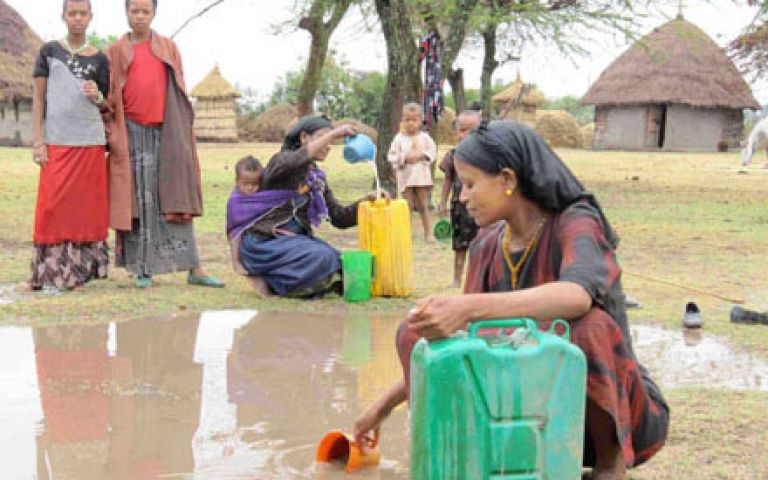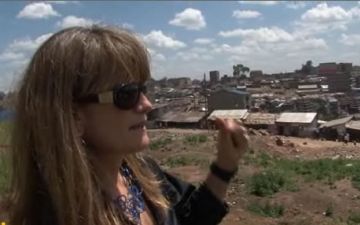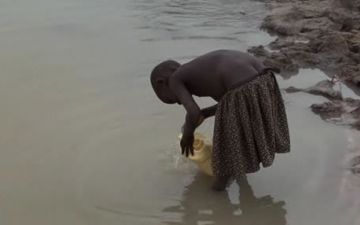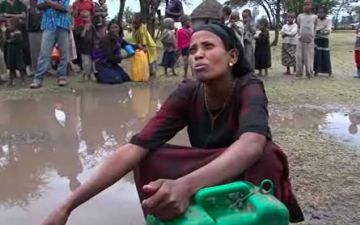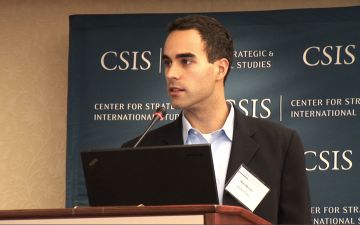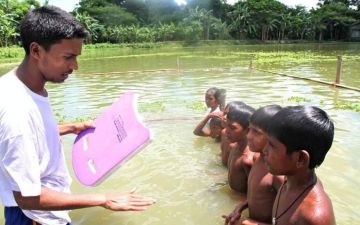In much of the developing world, women spend more time fetching water than any other activity in their day. For more than a billion people, the water they do get is unsafe. Some 2.6 billion must make do without functioning toilets.
Fred de Sam Lazaro reports on these and related issues from east Africa, as part of a Pulitzer Center collaboration with PBS Newshour.
In the Alaba province in southern Ethiopia, water shortages have broad social and economic effects - and in one village the addition of a simple and safe water tap is a transformative event.
Few diseases of unsafe water are more painful than guinea worm. This spaghetti-like parasite takes a year to mature in its human host before bursting through the skin in painful, crippling blisters. Reporting from southern Sudan, Fred records former President Jimmy Carter's long effort, now nearly completed, to eradicate the disease.
In Kenya's capital city of Nairobi, entrepreneur David Kuria is spearheading an effort to introduce modern, eco-friendly pay toilets. Venture capital came from the New York-based Acumen Fund after Kuria was rejected by every bank he approached. Now thousands of satisfied customers pay seven U.S. cents to use these spotless facilities, which number 35 and growing. Kuria's biggest challenge is to make the business model work in slums like Mathare, the focus of this reporting.
